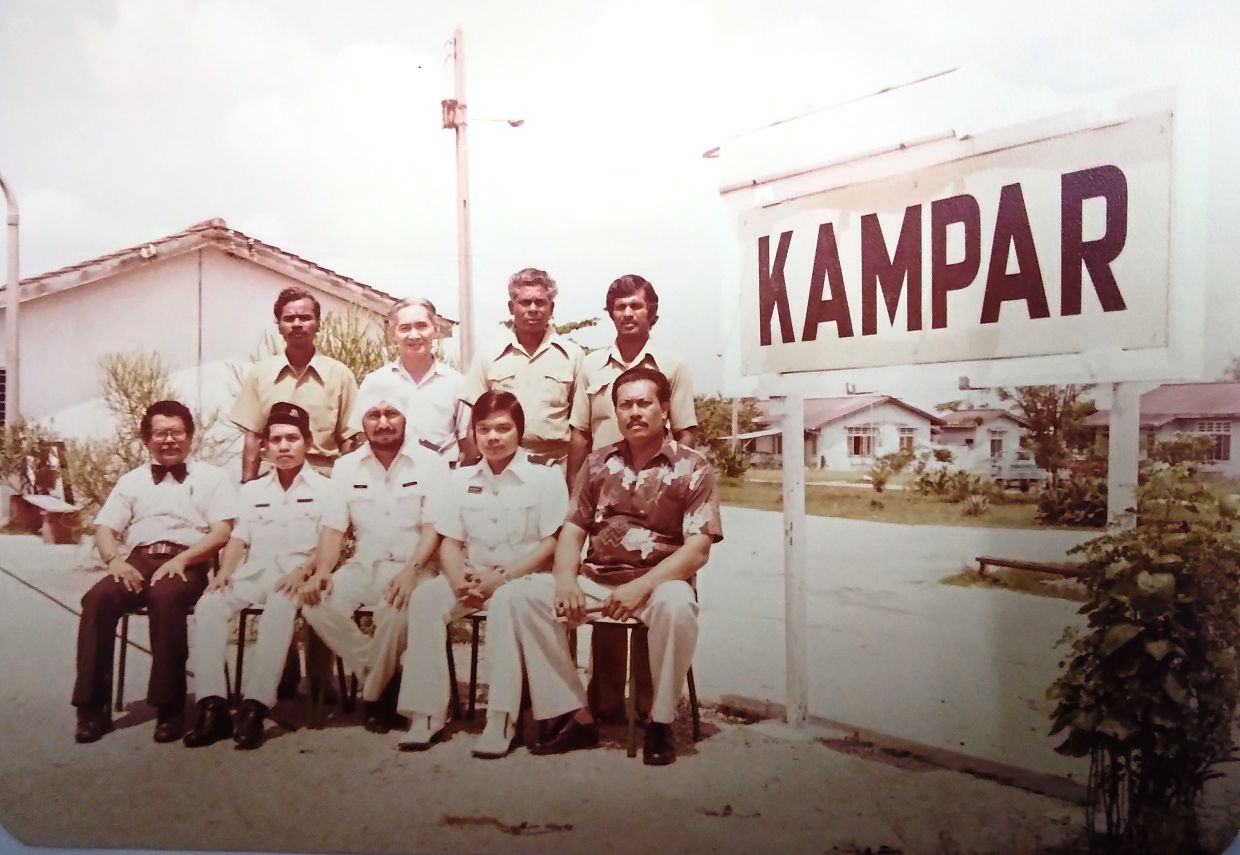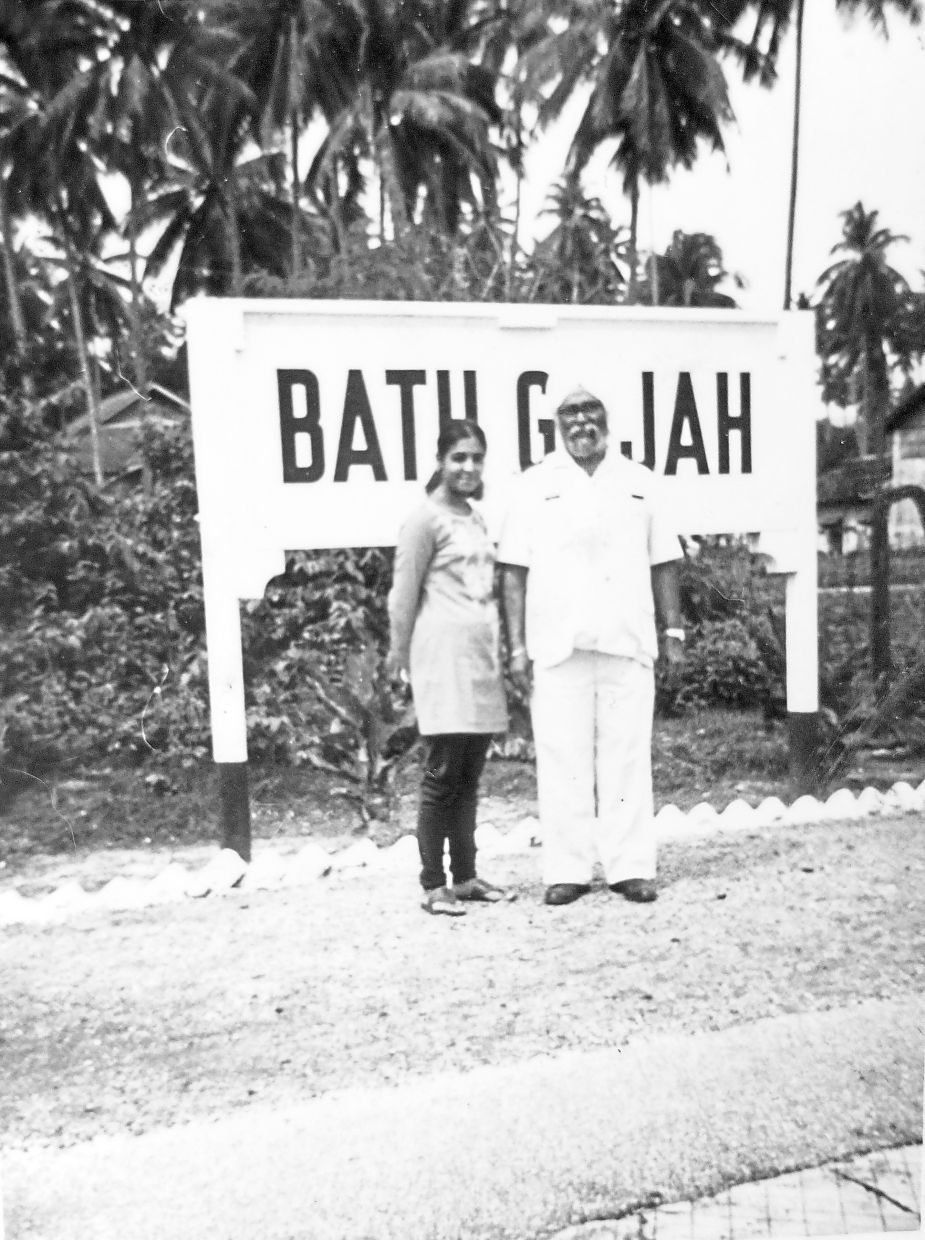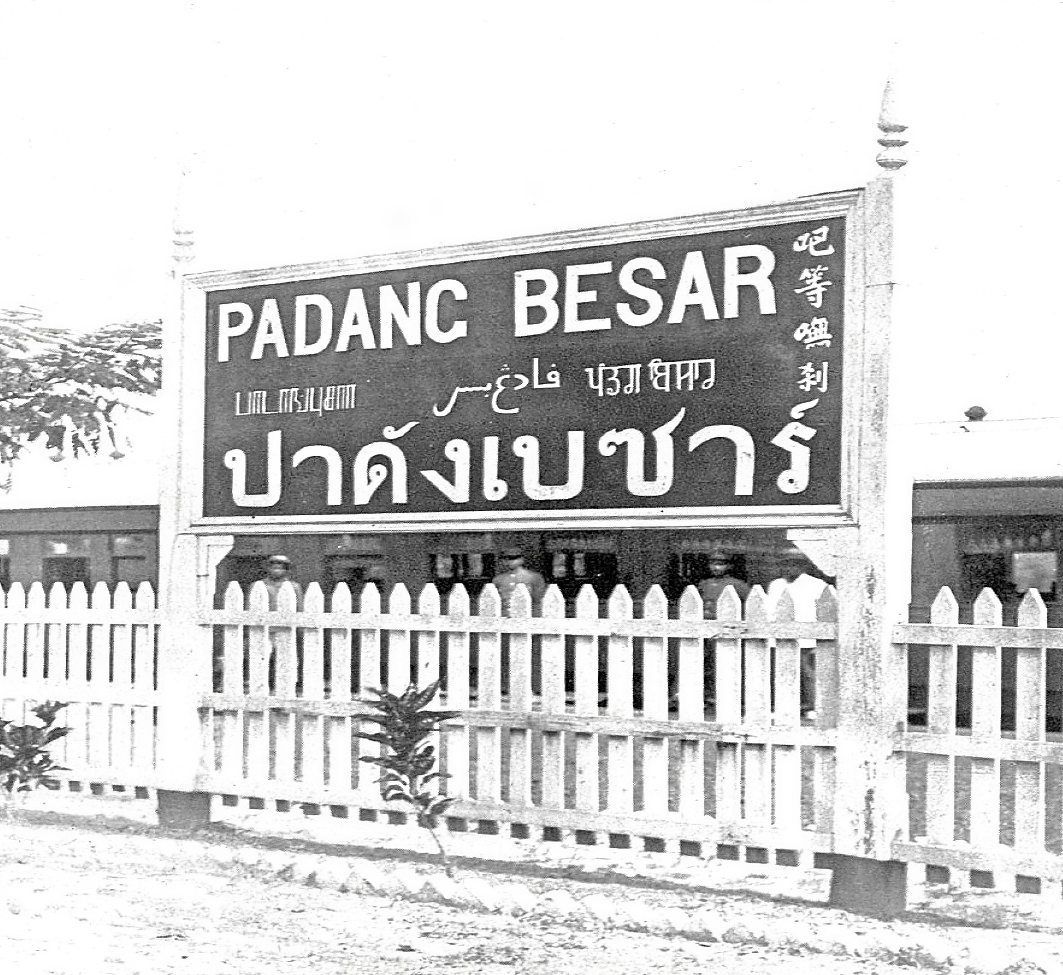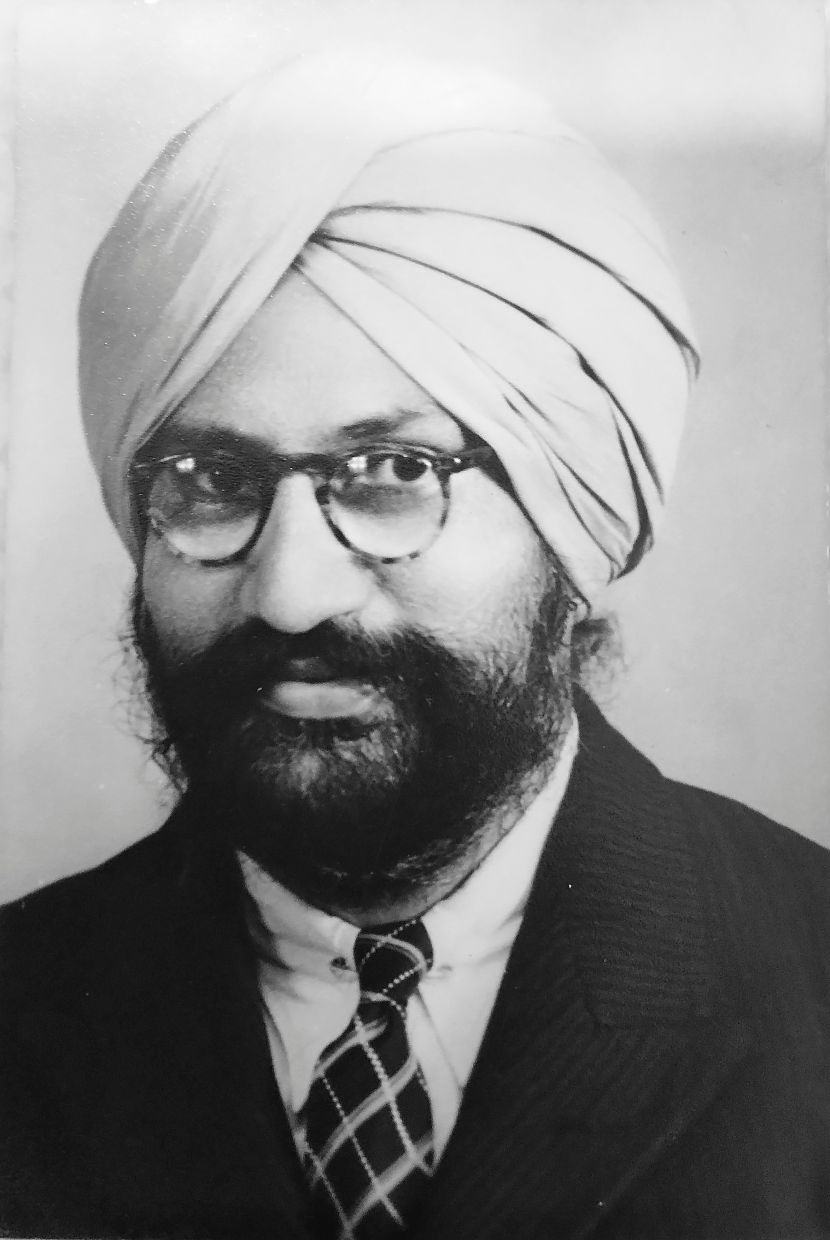On June 1, 1885, the railway age dawned on Malaya. It was a momentous occasion when the country’s first train embarked on an 8-mile (12.8km) journey from Taiping to Port Weld.
The creation of railroads opened up countless job opportunities, drawing a wide range of individuals to the nation. A diverse group of individuals, including a significant number of Sikhs, were handpicked for their skills and expertise to undertake the monumental task of building, operating and maintaining the railways across the country. They worked tirelessly towards the safety and betterment of the Malayan Railways.
The now-retired railway workers and the loved ones of those who have departed, tell stories of their experiences and collective memory of the railways. Tales of their perseverance and commitment are inspirational. It’s time we recognise their dedication and read their untold stories.
Ir Dalip Singh started his career as an apprentice in the Central Railway Workshop in Sentul, Kuala Lumpur, in 1936. He rose to become the Works Manager of Sentul Works in 1958.
Despite facing many challenges, including being arrested by the Japanese and accused of being a “British spy”, he persevered and continued to work hard towards his goals.
His commitment to the railways’ operational efficiency and safety was exemplified during a major railway strike in 1962 when he personally operated a crane to clear the tracks. His competence and leadership abilities led him to oversee locomotive depots nationwide.
In 1971, he was promoted to Deputy General Manager (engineering and operations). He retired in April 1974.
Gurbachan Singh, son of Sunder Singh, was a Traffic Inspector with over 21 years of traffic operational service. He was responsible for the efficiency of station and train work in his district.
He joined the Federated Malay States Railways (FMSR) in 1935. He was the president of the Malayan Railways Club in 1958 and 1959. He was the shot-put champion in Malayan Railways Sports for 10 years.
He was conferred the Bintang Ahli Kelantan by His Highness the Sultan of Kelantan in 1961.
In December 1969, he retired as Senior Traffic Superintendent from the Malayan Railways.
Gurbachan passed away on Dec 11,1969.
The younger brother of Gurbachan, J’swant Singh also served in the railways. He started off as a Junior Clerk in 1938, then rose through the ranks and took on various roles until he retired in 1973 as the Senior Assistant Traffic Superintendent.
He passed away on Sept 15, 2002.
Jagat Singh, son of Dasaunda Singh, was born in 1910.
In 1927, he joined the railways as an apprentice. He served in many stations like Tumpat, Gemas, Taiping, Ipoh, Port Klang, and Kuala Lumpur. Through hard work and dedication, he rose through the ranks to become a District Locomotive Superintendent.
Despite being marked by the communist terrorists, he continued to serve his country with courage and resilience during the Malayan Emergency.
As a supervisor of the “breakdown gang”, he travelled frequently to repair the track that was sabotaged by the terrorists.
One day, the terrorists approached some railway workers to enquire about his father. They told them that as his father knew English, he would relay instructions from the “White” boss to the workers. In one instance, a terrorist killed his boss.
Jagat and his team worked tirelessly to maintain the railway lines, despite the constant threat of terrorist attacks.
Having served 42 years in Malayan Railways, he retired in 1969.
He passed away in 1995.
Sarjit Singh, son of Inder Singh, dedicated 37 years of his life to railway service, tirelessly working to ensure the smooth functioning of trains. He handled emergencies with ease.
As an active member of the railway men’s union of Malaya, he held an executive position and contributed towards the betterment of his community.
One day, while preparing for the Express Rakyat from KL, Sarjit received a tip-off that some men were planting explosives on the railway line from Temoh to Kampar. He immediately informed the police and his district officers. His quick thinking and bravery saved countless lives and prevented a major disaster.
Ajaib Singh, the son of Meher Singh, started his journey in the railways as a machine cleaner in the 1940s.
With perseverance and hard work, he climbed the ladder to become a fireman and eventually a locomotive driver, amassing 20 years of experience in the railways.
Sadly, Ajaib met with an accident that took his life on April 23, 1968, at Layang-Layang Railway station, Johor. The accident was considered the worst in Malaysian Railway history.
His daughter Narinderjeet Kaur remembers him as a dutiful father and a kind, loving and very hardworking person.
Ajaib had two sons and three daughters. Narinderjeet’s grandmother shared many interesting stories about her late father, and recalled that during Ajaib’s service in Kelantan, His Highness, the Sultan of Kelantan would request him to drive the Royal Coach whenever he needed to travel by train.
Charna Singh, son of Sohan Singh, was born in Kampar, Perak, in 1922.
He studied at the Government English School (Sultan Yussuf School) in Batu Gajah, Perak. Just before he could sit for his Senior Cambridge, the Japanese forces occupied Malaya.
After the Japanese surrendered and left Malaya, he joined the railways in 1947 and started work at the Sentul Railway workshop until 1954.
He was promoted to assistant station master and transferred to Petaling Railway Station. He served there until 1959 and then was transferred to Batu Gajah Railway Station.
In 1971, he was transferred to Bukit Timah Station, Singapore, and retired in 1977 as a Station Master. He passed away on Aug 17, 2000.
His daughter Manjit Kaur shared a story of her late father, who in the early 1950s, was travelling to Batu Gajah from Kuala Lumpur, when the train they were on, was ambushed by the communist terrorists. With bullets flying everywhere, her father told everyone to duck and get down in the aisle between the seats. Thanks to his warning, all of them managed to escape unhurt.
Manjit Singh, son of Nahar Singh, joined the Railways in 1978. After completing his training at the Railway Training School, Sentul, in 1980, he got his first driving licence and worked as a locomotive driver. Subsequently, he was made Locomotive Under Foreman. He retired from the Railways in 2009.
Manjit acquired nine different licences to drive each new type of train ranging from Class 17 to 25. He witnessed eight incidents, mostly suicides or attempts at suicide, in his career lasting 31 years.
One day, while he was driving the train, suddenly he saw a girl running towards his train. He applied the brakes and blew the whistle and managed to stop the train on time and saved the girl from committing suicide.
Born in Moga, Punjab, in India, in April 1934, Mahinder Singh Baidy moved to Malaya at the tender age of three.
Despite various challenges, he completed his education at St Michael’s School in Ipoh.
In 1956, he joined the engineering department of the Malayan Railways, embarking on a long and fulfilling career of ensuring the safety of trains and their passengers by maintaining and repairing the rail tracks.
Mahinder’s dedication to his work was evident during the devastating floods of January 1971, when he and his repair team from Ipoh successfully repaired the train tracks and enabled train schedules to resume.
His passion for his work led to his promotion as Permanent Way Sub-Inspector in 1973, whereby he was transferred to Segamat. He continued to work tirelessly, ensuring the safety and maintenance of tracks and the smooth running of trains.
In 1979, he was promoted to Inspector and transferred to Alor Setar, where he continued his work with the same level of dedication. He passed away in 1982.
There are more than 50 archival records about Sikhs serving in the FMSR and Malayan Railways as contractors, engineers, fitters, carpenters, electricians, station masters, engine drivers, guards, railway police, goods clerks, accounts clerks, carriage and wagon examiners, riveters, etc, at the National Archives, KL.
These men were the backbone of this intricate train network that kept the wheels of the nation moving. Their pride in their workmanship and their devotion to duty was unparalleled.
The writer has a passion for researching history and writing, with a focus on the Sikh community. He can be reached at: harchandsinghbedi@yahoo.co.uk.



















